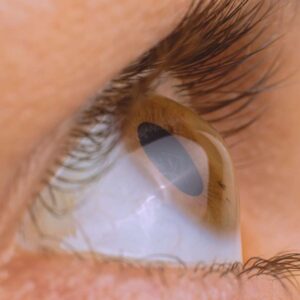Choosing a Lens for My Eye Surgery
Posted in Bellingham, Eye Blog, Medical, Mount Vernon, Refractive Lens Exchange, Sedro-Woolley, Stanwood, Surgery, Whidbey
by Andrew Sumnicht MD

for your specific lifestyle.
I’m considering cataract surgery or refractive lens exchange (RLE) but there are too many options to consider for my lens choice. What lens should I pick?
Having cataract surgery or RLE is a significant decision and you have finally decided to proceed. There seem to be so many ways to have the procedure done that the options are overwhelming! One of our cataract surgeons has taken the time to break down the various options for you. Completing a vision preference questionnaire and having some knowledge about your options prior to your consultation will make the conversation about choosing a lens go much more smoothly.
The most common lens used: The monofocal (“standard”) lens
This lens can only correct nearsightedness (myopia) or farsightedness (hyperopia) but will not correct astigmatism. Many people don’t mind wearing reading or computer glasses, since they have gotten used to it for years or even decades. Others are near-sighted and enjoy reading without glasses but will wear glasses for distance vision. Some people aren’t interested in spending anything extra out of pocket.
In this case, the “standard” or “monofocal” lens choice is used to give you the best possible distance or near vision, but you will still need glasses for other activities at other ranges of vision. If your eyes have “monovision” either by LASIK or naturally, you can continue to have monovision by using a monofocal lens (or can even return the two eyes to have matching vision). If you have a significant amount of astigmatism, this lens will not correct for it and you will likely still need glasses for most activities after surgery.
The monofocal lens is covered by insurance. A monofocal lens choice is not usually used for RLE, but if it is, it would be associated with the lowest out-of-pocket cost for the lens portion.
My eyes have astigmatism which makes my vision blurry at all distances. Can this be corrected?

caused by astigmatism.
Absolutely! We can use a lens called a “toric” lens which is oriented in precise position within your eye in order to correct your astigmatism. This can be applied either to a specialty monofocal lens (you will still need readers) or a multifocal lens (no glasses needed after). Any toric correction is associated with additional cost to the patient.
It sure would be nice to not need ANY glasses. What are my lens options?
Technology has come a long way with lens implants, and the lenses we use are as good as they come. There are two main multifocal (presbyopia-correcting) lens implants we use: a “trifocal” lens (e.g. PanOptix by Alcon) and an “extended depth of focus (EDOF)” lens (e.g. Vivity by Alcon). These lenses have additional out-of-pocket expense.
A trifocal lens choice will provide the most glasses freedom, improving vision depth from reading all the way to driving. One possible con of the trifocal lens is that due to the lens design, you may notice sunbursts around lights–more noticeably in the evenings. However, most patients love the vision quality that they get and the effect on lights does not bother them and even becomes less noticeable with time.

An EDOF lens is a good option for those who do not wish to chance the starbursts of light. However, this lens has a limited vision range in the near range (e.g. reading). This is a good option for those who wouldn’t mind wearing low-power readers for fine print, or who have a lifestyle that does not depend on near vision as much as distance and intermediate (e.g. dashboard, computer) vision.
Unfortunately, no matter what the insurance plan is, there is no insurance carrier that will cover the toric or multifocal lenses, since the plans consider them to be cosmetic upgrades. However, you may speak with our surgery-scheduling staff to discuss various ways to help cover the cost.
What about “laser eye surgery” I hear about on advertisements?
Some surgery centers utilize different types of lasers during surgery to enhance their accuracy of visual outcomes after surgery. Patients at Cascadia Eye all undergo a uniquely intensive screening and measurement process to ensure the highest quality calculations are done to pick the correct lens implant for your eye. We have tracked years of our own surgical data and know our outcomes are more precise than outcomes associated with laser-assisted surgery. From these years of experience and from following this data, our surgeons believe that adding laser technology to your cataract surgery would only add cost to you while providing no additional benefit to your outcome from surgery.
A breakdown of your lens choice

- Monofocal (Standard or single-power lens)
- Pros: can correct your farsightedness or nearsightedness without glasses, covered by insurance, high quality material will give you sharp vision after cataract surgery.
- Cons: cannot correct astigmatism and you will still need glasses for reading or driving (or sometimes both).
- Toric
- Pros: can correct your full glasses prescription to allow you to see everything in the distance without needing glasses. Improved quality vision without having to pay as much as the multifocal lens.
- Cons: Will still needed glasses for reading (over-the-counter), cost not covered by any insurance company.
- Trifocal (e.g. PanOptix)
- Pros: Best lens for not needing any glasses for near, middle, or far vision. Can also correct astigmatism.
- Cons: Increased chance of starburst around lights, cost not covered by any insurance company.
- Extended depth of focus (e.g. Vivity)
- Pros: Great distance and intermediate vision (e.g. dashboard, computer). No glare or halos. Can still achieve glasses-free vision with this lens through “mini-mono vision” (ask your surgeon what this means!)
- Cons: not as much freedom from glasses compared with the trifocal lens; you may still need readers for fine print. Cost not covered by any insurance company.
Would cataract or RLE surgery be a good option for me?
Contact Cascadia Eye
If you would like to learn more, or if you would like to schedule an appointment or consultation with our talented doctors at Cascadia Eye, please contact us today. You may also pre-shop for glasses at our online pre-shopping page any time. Our entire team is committed to protecting and improving your vision and the health of your eyes. We are happy to answer any questions you might have!
In addition, join us on Facebook, Instagram or YouTube to ask your questions about eyes, exams, and our practice. We’d love to hear from you – and there might be a blog to address your questions in the future.



